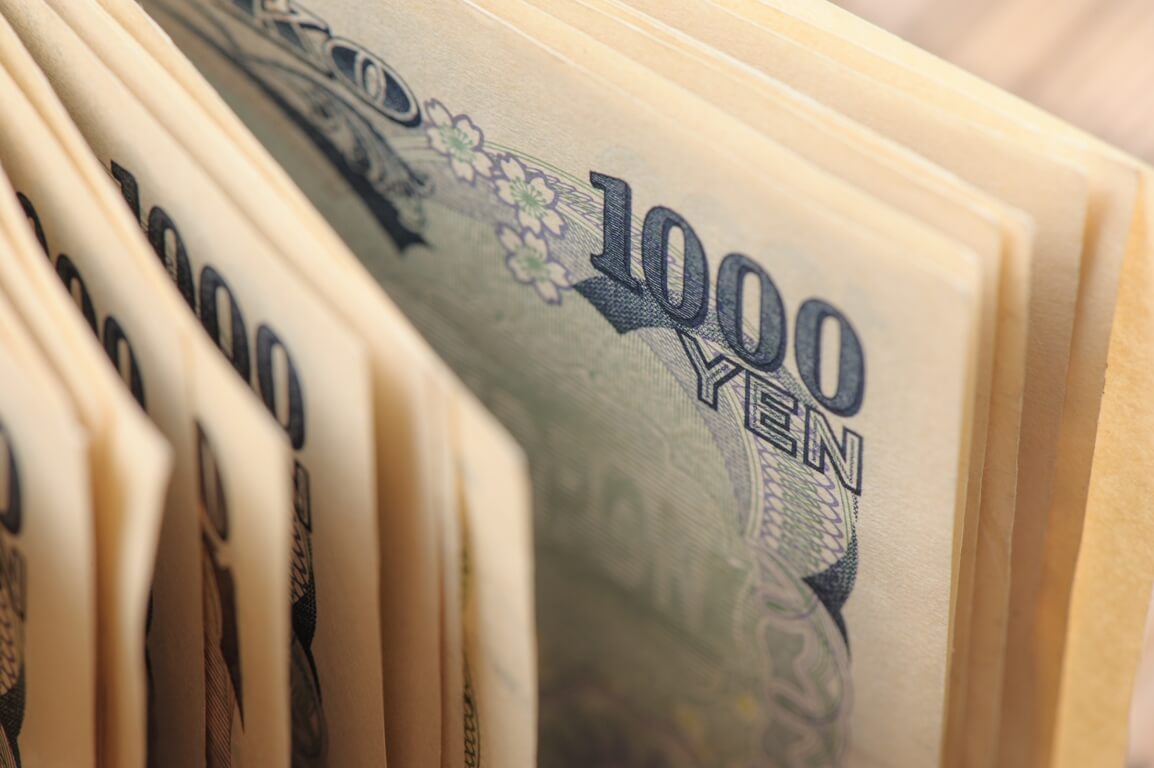The Japanese yen plunged lower than 126 per USD on Wednesday, falling so deep for the first time since 2002. The euro also traded at a one-month low today. Investors bought the greenback after hawkish comments by Federal Reserve officials.
The prospect of fast and aggressive U.S. interest rate hikes, along with growing FX market expectations that the Bank of Japan will keep rates ultra-low in the near future, have fueled the Japanese yen’s decrease against the dollar. The recent surge in inflation driven by higher import costs could hurt the country’s economy. It’s also stressing the central bank’s resolve to keep monetary policy ultra-loose – warned Bank of Japan Governor Haruhiko Kuroda on Wednesday.
Meanwhile, Scotiabank strategists noted that the Federal Reserve’s hawkishness against the BoJ’s extreme dovishness would remain a clear headwind for the yen over the foreseeable future. It is not unreasonable to expect the currency losses to continue to the 130 mark. During Wednesday’s session, the yen led losers against the USD, with the Japanese unit lowering by 0.8% to cross the 126 yen to the greenback level. It exchanged hands 0.5% weaker at 126 yen in London at last.
According to Tuesday’s data, U.S. monthly underlying inflation pressures showed some signs of moderation. However, investors ramped up bets that the U.S. central bank would accelerate its monetary tightening measures in 2022. Kenneth Broux, an FX strategist at Societe Generale in London, stated that the U.S. dollar would likely continue to do well against the low-yielders such as the yen and the euro.
How is the dollar trading now?
The greenback climbed up by 0.1% up to 100.52 against a basket of six major currencies, hitting its highest level since April 2020. It has gained almost 3% thus far this month. Furthermore, the currency is on track for its biggest monthly increase in nine months.
In Asia, the New Zealand dollar was buffeted today. The Reserve Bank of New Zealand announced its sharpest rate rise in two decades to hinder soaring inflation. While the 50 basis point rise was larger than many analysts had expected, it was within the market player’s expectations. Besides, policymakers tempered the move by not lifting their projected high points for rates.
The euro tumbled down to $1.0821 overnight, reaching its lowest level against the greenback in more than a month. It stayed near $1.0837 in London trading. On Wednesday, German lawmakers announced their decision to call for an embargo on Russian oil as soon as possible. If implemented, that would further weigh on the eurozone’s growth prospects. Meanwhile, the Australian dollar and the offshore Chinese yuan declined slightly after a surprise drop in China’s imports added to traders’ worries about weakening demand.
Most Asian currencies and stock indexes climbed higher on Wednesday despite Aussie and Kiwi’s losses. But the Indian rupee tumbled down due to a sharper-than-expected jump in retail inflation in March. India’s 10-year bond yield soared to fresh three-year highs as the country’s inflation increased by 6.95% to its highest in 17 months. The rupee shaved off 0.1% on Wednesday.
What about other EM currencies?
The South Korean won gained the most among the EM currencies, quitting a five-day losing run to add 0.7%. The won was on track to celebrate its biggest percentage rise since March 17. Furthermore, the Malaysian ringgit soared by 0.1%, experiencing its sharpest rise since April 5. The currency had been declining for the past five sessions before that.
Indonesia’s rupiah, the Singapore dollar, and the Philippines peso traded largely flat. According to U.S. Labor Department’s report, consumer prices rallied to 8.5% in the 12 months through March. That’s slightly higher than the estimated 8.4%. Still, traders remained focused on the so-called core CPI that fell short of estimates at 6.5%. The Fed’s hawkish stance has set the stage for further policy tightening narrative from the EM markets in Asia as surging prices are a concern globally.
On Thursday, investors await a slew of policy decisions from the European Central Bank, Bank of Korea, and Monetary Authority of Singapore. The forex market is also concerned about a protracted war in Ukraine. Russia announced that peace talks with the latter hit a dead-end on Tuesday. Yeap Jun Rong, a market strategist at IG, noted that risk appetite would likely continue to struggle in the face of headwinds from rising oil prices and the coronavirus situation in China.











